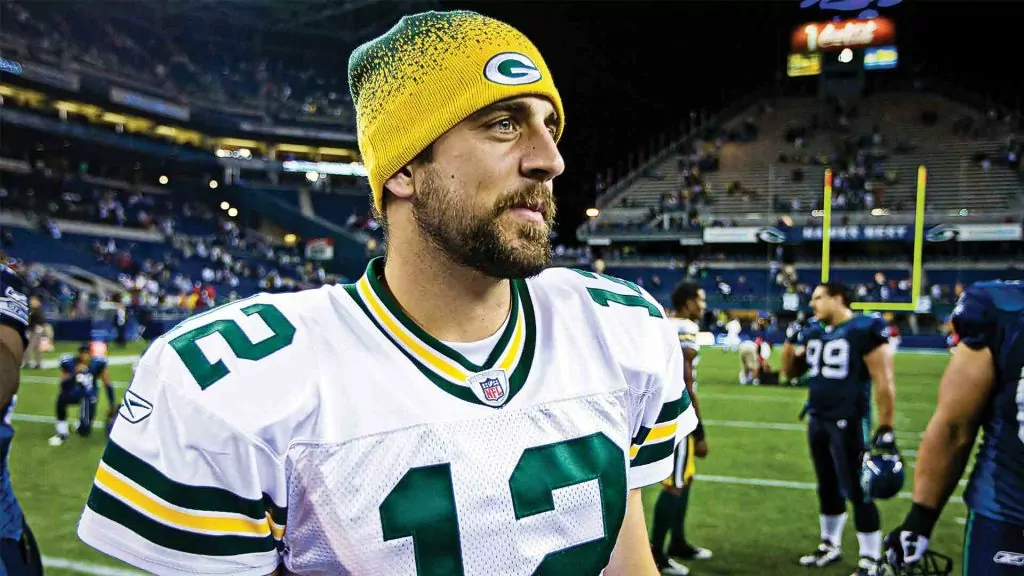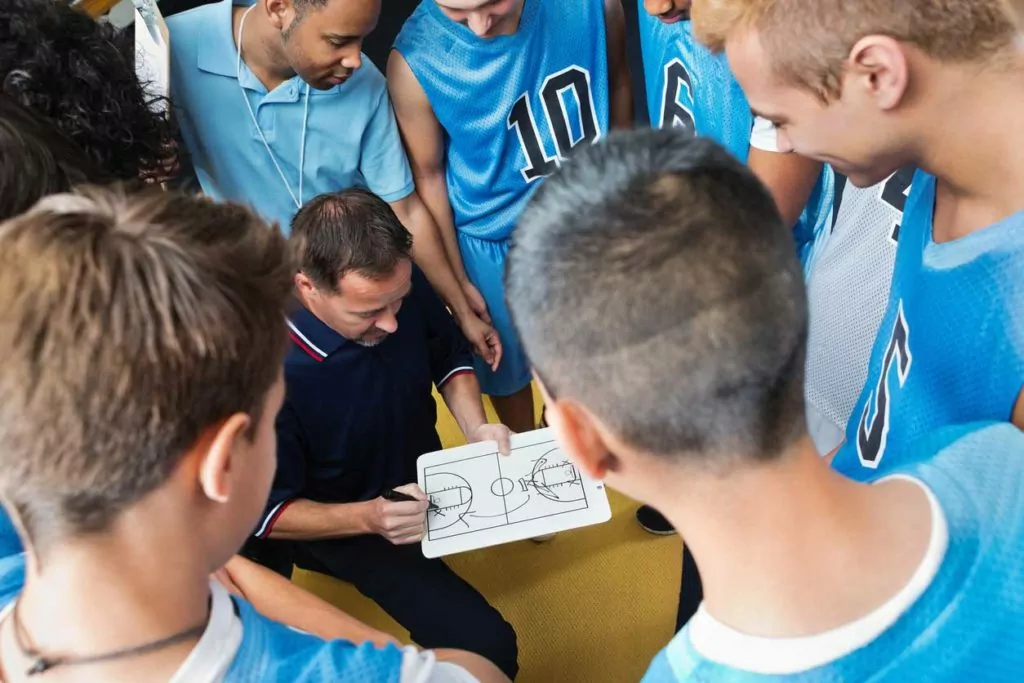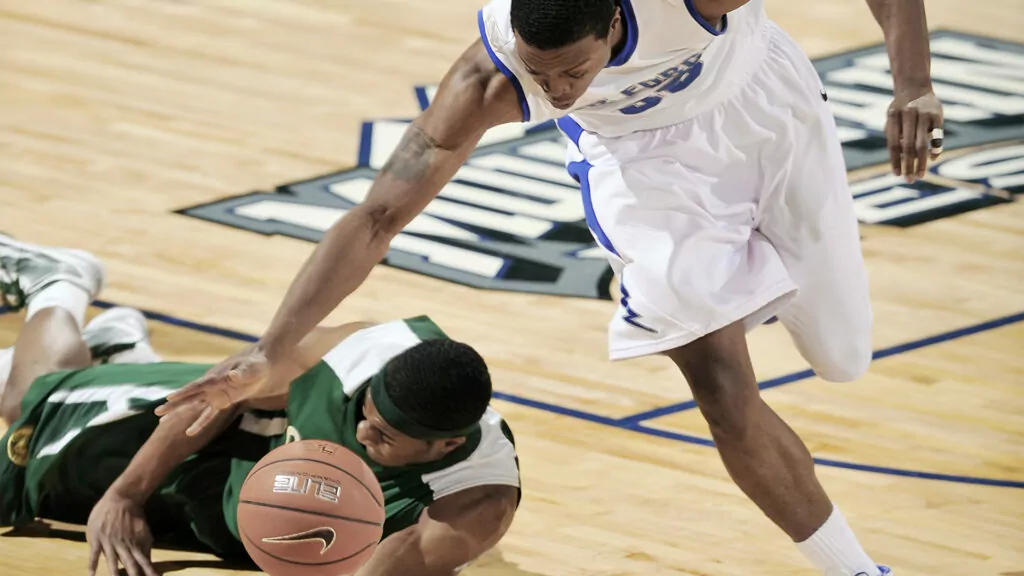
Christian education - Sports, Theology
God and the 2014-15 Seattle Seahawks
All about God’s sovereignty, Man’s free will, and American football
*****
When the editor suggested I write a piece about American Football, I was a little taken aback. Firstly, this did seem like an odd subject for a magazine like Reformed Perspective. “But still,” I thought, “I suppose we can hardly claim on the one hand that Christ is Lord over all of life, then on the other hand rule American Football as being off-limits.”
The second reason was even more fundamental. I’m a Brit. And not a Brit that has any love, let alone knowledge of American Football. In fact, I’ll put my cards on the table right now: the game has about as much fascination for me as the game of cricket probably has to the average US Football fan – that is to say none whatsoever. So I was relieved as I read through the editor’s request to find that the American Football bit was somewhat incidental, and I was not being asked to spend hours watching old Giants vs. 49ers games on YouTube.
Rather, the request was to try and make some sort of sense of comments made by Russell Wilson, the Seattle Seahawks quarterback, after his side’s victory over the Green Bay Packers in January (2015), which sent Seattle to the Superbowl.
The most improbable of comebacks
For those not familiar with what happened, with less than four minutes left in the game and trailing 19-7, the Seahawks staged a dramatic recovery, tying the game to take it into overtime, before going on to win 28-22. What was especially amazing was that the Seahawks’ quarterback, Russell Wilson, went from playing one of the worst games of his life, throwing four interceptions, to scoring three touchdowns in the game’s final 6 minutes.
Wilson then caused a stir with his post-match comments when he was asked to explain how his team has gone from being down and out without any hope to being victorious a few minutes later:
"That's God setting it up, to make it so dramatic, so rewarding, so special."
Of course, this set the whole Twittersphere afluttering with many ridiculing his claim. It also set off a series of articles on the web with titles like, “Does God play a role in picking the winning team?”
What are our options?
So what should we make of Wilson’s comments?
I think we have to break our answer into two parts, one of which deals with the general question of God’s relationship with His creation, and the other which deals with the more specific question of whether He intervened in this particular instance.
The first and more general question is basically a question about the nature of God’s sovereignty, and I think the best way to look at this is to examine all the other possible answers that could have been given as to whether God really did intervene to make the match so dramatic. These positions are:
- God has nothing to do with Seattle Seahawks games because there is no God.
- God has nothing to do with Seattle Seahawks games because He does not deal directly with the created order.
- Although God is sovereign, He has nothing to do with Seattle Seahawks games because He could care less about US Football.
- God has everything to do with Seattle Seahawks games, foreordaining their results, and so when Wilson threw his interceptions, that was because of God’s direct “interception.”
- God has everything to do with Seattle Seahawks games, foreordaining their results, yet he does so in such a way that does not involve the kind of direct intervention Wilson suggests
We can further categorize these positions as follows:
- God is in control of nothing because he is not there (Atheistic).
- God created the universe, winding it up like a watch, and then left it to its own devices (Deistic)
- God has created the universe, but He is only interested in “spiritual things” (Pietistic)
- God is sovereign and controls everything that happens, to the extent that no-one has free will (Ultra Sovereignty)
- God is sovereign and is involved in everything, yet in such a way that man has liberty to act and to make choices (Sovereignty)
Narrowing it down
I trust that readers of Reformed Perspective can see that both the first two positions are highly illogical, not to mention unbiblical. It is highly illogical to believe that something came from nothing – and by that I really mean nothing: no time, no space, no matter – not to mention also believing that the something was then capable of organizing and sustaining itself into an amazingly complex order.
It is also highly irrational to believe that a creator would go to the trouble of creating an amazingly complex order, only to walk away with total disinterest, leaving it to itself.
What of position three? It actually turns out to be quite odd, since it refutes the very claim it makes. Those who hold to this position tend to be loud about the “sovereignty of God,” yet they then extend this sovereignty to include about 0.000000001% of the universe that God created. Well, if God is sovereign, He is sovereign over all creation and so the idea that He cares nothing for certain parts of His creation – especially “physical things” – is a denial of His sovereignty.
What of positions four and five? They actually share many things in common. Both agree that God is sovereign over all things, including Seattle Seahawks games. Both agree that God foreordains the results of Seahawks games. Both agree that God upholds all the players involved and without this the game could not have been played, let alone played out so dramatically. Yet the difference is that whilst the fourth point understands this to mean that God controls everything, down to the last interception, and so basically micromanages His creation, which seems to me to be closer to Greek fatalism than biblical Christianity, the fifth view understands this in a way that retains God’s sovereignty, but also insists on man’s “free will.” Personally I take the fifth view to be the correct one.
Free will?!?
I realize that this might spook some readers. “We don’t have free will,” some might say, “as we lost it in the Fall.”
My response is as follows. What we lost when Adam sinned was communion with God, righteousness, holiness and spiritual life, so that we need to be saved, and have no free will to choose salvation. We are by nature dead in trespasses and sins – as dead spiritually as Lazarus in the grave was physically – and as you know, dead people can’t bring themselves to life.
However, this is not the same as saying that we lost our ability to make choices in all other areas of life, though of course those choices will be dictated by our sinful hearts. So as I sit here typing, did God foreordain it? Yes. Am I doing it out of free will? Yes. This seems impossible and counter-intuitive, but then He is an "impossible and counter-intuitive" God.
Here is how chapter three of the Westminster Confession puts it:
"God from all eternity, did, by the most wise and holy counsel of His own will, freely, and unchangeably ordain whatsoever comes to pass; yet so, as thereby neither is God the author of sin, nor is violence offered to the will of the creatures; nor is the liberty or contingency of second causes taken away, but rather established."
This is a grand and frankly amazing statement. The God it presents is infinitely bigger than our imaginations can grasp.
Look at it like this. Can you imagine a God who sets up the world and then gives perfect free will to his creatures so that He doesn’t know what is going to happen next and can’t control it? Yes, I can easily imagine Him. What about a God who unchangeably ordains whatsoever comes to pass, and does so by micro-managing every single detail to the nth degree? Yep, I can get my head around Him too. But what about a God who unchangeably ordains whatsoever comes to pass, yet does so without infringing on the liberty of His creatures to make choices of their own “free will”? I must confess that I am unable to comprehend such a God, or to understand how this is possible, but then again I have no understanding of how a universe can be spoken into existence either, or how the eternal Son of God can become a baby. Such things are too high for me, and I accept them by faith.
What I am suggesting is that God is neither a deist God who is uninvolved in His creation, nor a pietistic God who is sovereign over a tiny portion of His creation, nor is He a micromanager who manages every aspect of it in the kind of minute details we understand by micromanaging. Rather, He is in sovereign control, upholds everything by the Word of His mouth, foreordains all things, yet does so in such a way that He is not in the business of micromanaging Russell Wilson’s passes.
Conclusion
But moving on to the second question, couldn’t He do that if He wanted? Doesn’t God intervene in His creation?
Of course He does, and the Bible is full of instances of His interventions in human affairs. But the question is not whether He can intervene, but rather did He intervene in this specific instance?
The question here hinges to a large extent on just how much priority God puts on the results of American Football games. Now as someone who upholds the sovereignty of God in everything, and the Lordship of Christ over everything, I understand that God cares about all of His creation and this includes American Football. But is this the same as saying that He cares about it to the extent that He is prepared to intervene to “change the result” and give the watching audience a good time? Emphatically no.
Pietists (number three in the positions mentioned above) often want to reduce the things God cares about to “spiritual things” such as salvation, worship, prayer and Bible-reading, with everything else reduced to nought. Then over in the other ditch, there are others who want to flatten everything to make out that God cares for all things equally.
This is not so. Just as we hierarchies of importance in our lives, it is fairly clear from the Bible that God has hierarchies of interest and importance. Yes, He is interested in American Football, in that He created the players, gave them the ability to play what is essentially a perfectly okay game (well cricket is better of course), and in that He calls on man to do things with all their might and for the glory of God. However, this is not the same as saying that He is interested enough in it to intervene in a game to make the game more exciting and give everyone a good time (except of course for Green Bay fans).
In conclusion, though God cares about His entire creation, and though He ordained the surprising events and the result in the match between the Seahawks and Green Bay Packers, I think Russell Wilson would have a hard time making a Scriptural case that God intervenes directly in such matters.
This was originally published in the March 2015 issue under the title "God and the Seahawks."














